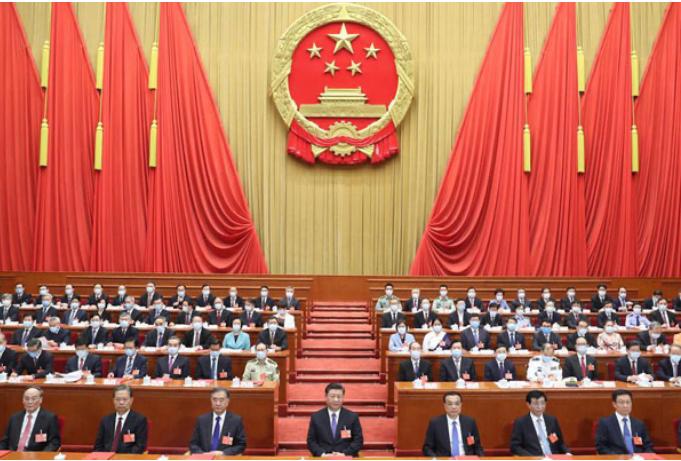The lowest GDP target, in decades, was announced by the China’s outgoing Premier Li Keqiang, highlighting the domestic and global challenges the world’s second largest economy still faces despite its decision to ditch draconian anti-Covid measures.
Li had set a target of about 5% growth for 2023 during the National People’s Congress on Sunday, while acknowledging the “many difficulties” the economy has been facing. The only year in recent history when the government has been less ambitious was in 2020, when it passed on a numerical target because the economy was nearly paralyzed due to covid.
Perceived as marginalized by Chinese leader Xi Jinping in recent years, Li has formally stepped down during the congress as part of the biggest shake-up to the country’s economic leadership in a decade.
Li is likely to be departing along with a generation of Western educated, reform-minded officials, who have influenced economic policy making over the past 10 years. The new team, tipped to be composed of Xi’s close associates, faces the tough task of reviving the economy.
China is in the midst of a historic downturn for the all-important housing market. Consumer spending has been sluggish. Unemployment remains high among the youth.
Business confidence has plummeted following an unprecedented regulatory crackdown on the private sector and increased uncertainties about China’s future policy. Relations between the United States and China are at their lowest point in decades, leading to escalating tensions in technology and investment. Foreign investment in China has slumped.
Mass protests erupted late last year across the country, in a rare show of dissent against the ruling Communist Party sparked by anger over its zero-Covid policy. Last month, protests occurred in the central city of Wuhan and northeastern city of Dalian as hundreds of elderly confronted local officials to oppose changes to their health insurance, which had cut their medical benefits significantly.
In Li’s final report on the work of the government, he called for expanding consumption and set a goal to create around 12 million jobs in towns and cities this year, up from last year’s target of at least 11 million.
Beijing will also allow local governments to issue up to 3.8 trillion yuan ($550 billion) in special bonds in 2023, which will help them build 5G networks, railways, airports and other infrastructure projects, he said.
But that is lower than last year’s quota of 4.15 trillion yuan and below market expectations.
The government’s fiscal deficit last year was too high, at 8% to 9% per GDP, which has likely reduced its firepower to fund more infrastructure spending, she explained.
Premier Li also said the government would only raise fiscal spending by 5.6% this year, which is lower than the growth of 6.1% in fiscal spending in 2022.
According to the finance ministry’s latest budget report, local government revenue is expected to grow by only 0.4% this year, an indication of Beijing’s conservative forecast on land sales.
Earlier this month, Liu Guoqiang, a deputy governor at the People’s Bank of China, said the economy needs more policy support, but the central bank will not resort to “flood-like” stimulus measures as it seeks to strike a balance between boosting growth and ensuring price stability.
















